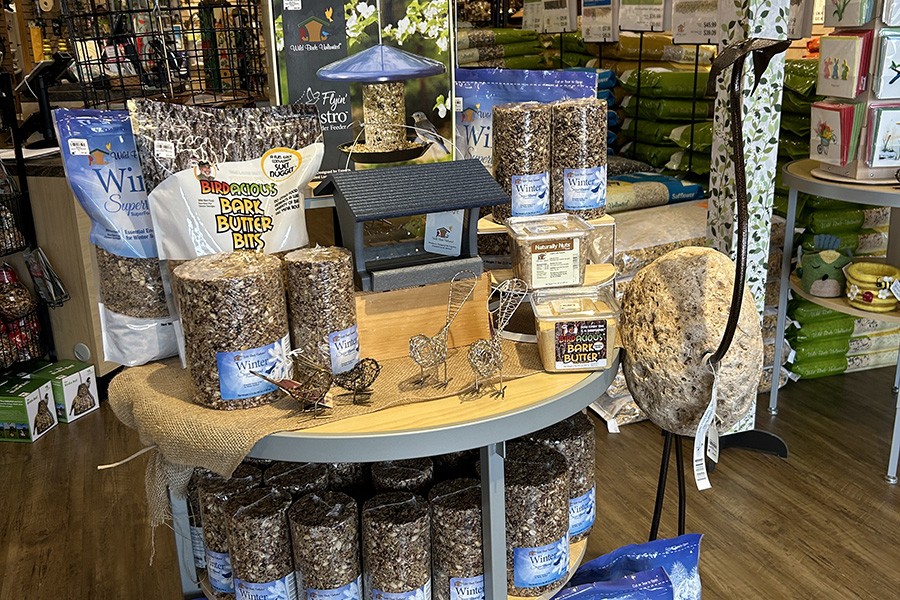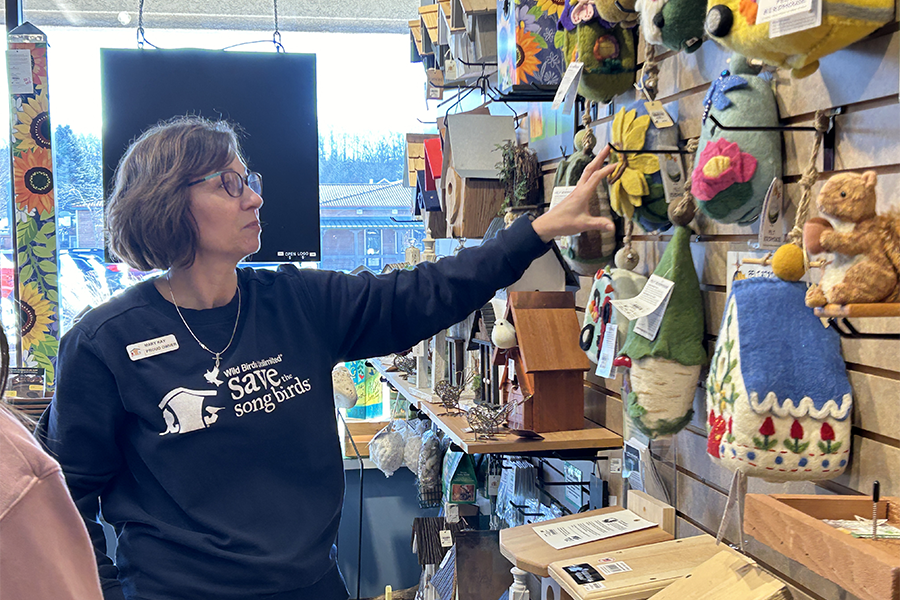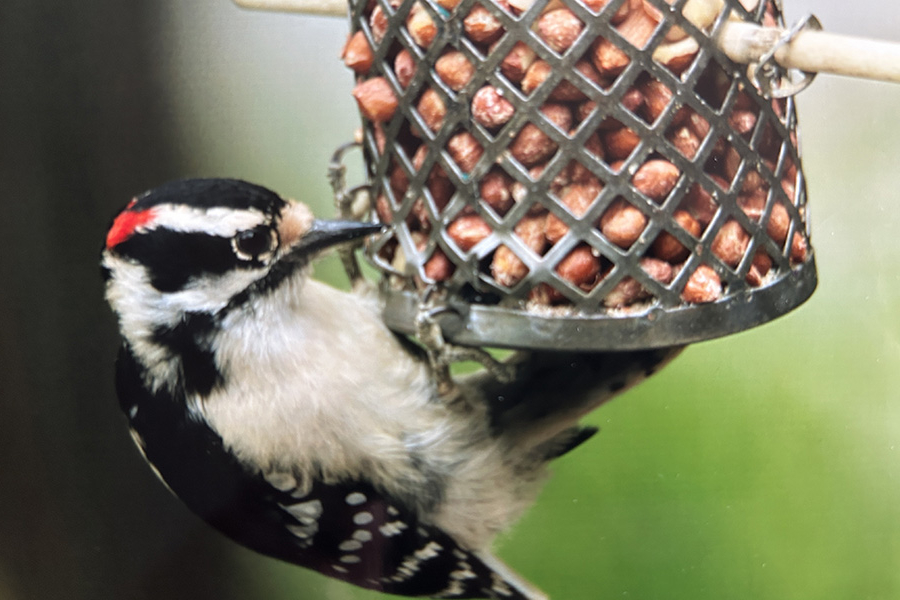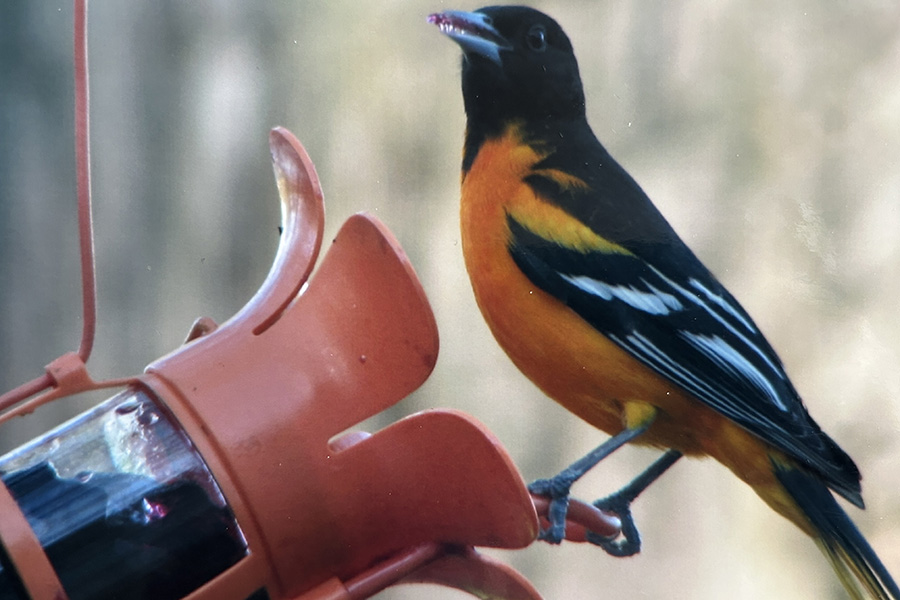Headlines
Caring for Wild Birds in a Weird Winter
Mary Kay Diderrich diligently maintains 36 bird feeders around her home. According to her business card, Diderrich’s title is “Proud Owner” of Wild Birds Unlimited Nature Shop in Delafield. She has been an ardent bird lover for much of her life. After over 20 years of executive-level experience in the healthcare industry, Diderrich bought the Wild Birds Unlimited franchise two years ago to pursue her passion.

Diderrich explained, “Our adjunct feeding combined with birds’ normal feeding is better for their survival. Winter is a time for high-fat food, so we are showcasing peanuts and suet. All of our winter seed blends are well-rounded and packed with fatty nutrients.” With the recent mild temperatures, birds are foraging naturally on weed seeds and dried berries on trees which can impact activity on feeders at people’s homes. Some customers become concerned when they don’t see birds at their feeders. Dietrich calls this phenomenon the “purgatory phase” because, typically, winter is a robust feeding phase. It is important to keep feeders filled and available to the birds as they will stay nearer to consistent food sources and return to the feeders when natural food sources become scarce. She added that she may be placing her winter seed blends on clearance soon due to the ongoing higher-than-normal temperatures.
Interestingly, birds need high-fat, protein and calcium-rich foods not only in winter but also in spring to create healthy eggs with sturdy shells and to promote strong bone growth in chicks. Springtime also is molting season which is extremely hard on birds because shedding feathers to make room for new growth requires a lot of energy.
“Bird feeding is a joy-filled hobby, but comes with responsibility,” said Diderrich. People need to responsibly dose seed to control the volume of food offered so birds can consume what is available before the food spoils. She recommended offering birds fresh, natural seeds weekly and ensuring the food has no chemical alternatives that may negatively impact bird health. If people run out of bird food, Diderrich explained, “Do not feed birds bread or processed foods because they tend to have too much sodium. Instead, feed them fruits and berries or small doses of peanut butter containing low- hydrogenated oil.”
Diderrich explained that feeders should be assessed routinely and cleaned monthly to avoid building up mold or attracting mice, especially during periods of wet weather. Any wet seeds should be removed from the bottoms of feeders as quickly as possible. Feeders can be cleaned in a stationary tub, a 10-gallon bucket or a large plastic container filled with dishwashing detergent and hot water. A one-to-ten ratio of bleach to hot water can be used instead of detergent, but do not use vinegar as it may ruin the finish on some feeders. Soak the feeder for several hours, clean it with a large, stiff brush and air dry for 24 hours before refilling.

Spring Migration & Nesting
Diderrich receives frequent questions from her customers about the impact of mild temperatures on both bird migration and nesting patterns. She indicated that it is a misnomer that the weather impacts migration because birds have internal clocks or barometers and a routine, so they will not migrate earlier this year. She explained that the only impact on bird physiology is that they are not fighting for survival at night given the mild temperatures.
Many of her customers are looking forward to the spring nesting season, so Diderrich has created a delightful display of felt birdhouses. The houses are sized to attract small birds, including chickadees, wrens and nuthatches. Titmice may pull bits of the house apart to add material to their nests. The fun and colorful houses are made of sustainably harvested water-repellant sheep’s wool that can be washed, rinsed and air-dried after the nesting season.
Wild Birds Unlimited lives up to its name. The shop is filled with everything about birds. Socks, hand towels, books, wine glasses and bottle toppers, wall art, earrings and gift cards donned with native Wisconsin birds are available to browse or buy, in addition to a wide variety of feeders, seeds and suet options.
Behind the check-out counter of the shop, a wall-mounted television features a video loop of colorful birds playing around and feasting at a variety of feeders. For those interested in learning more about birds, Diderrich explained the video is from the Cornell Lab of Ornithology whose mission, per its website, is “to interpret and conserve the Earth’s biological diversity through research, education and citizen science focused on birds and nature.”
Mary Kay Diderrich’s deep knowledge of birds is inspiring, and her overflowing passion for their care and well-being is contagious.






